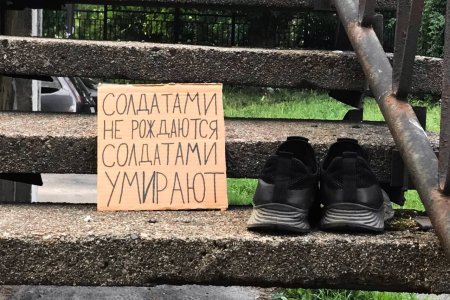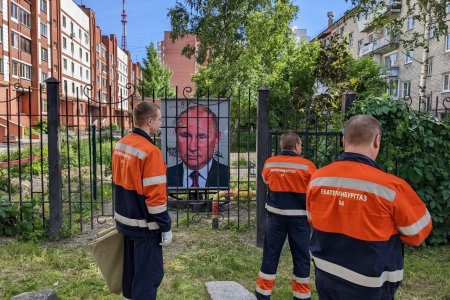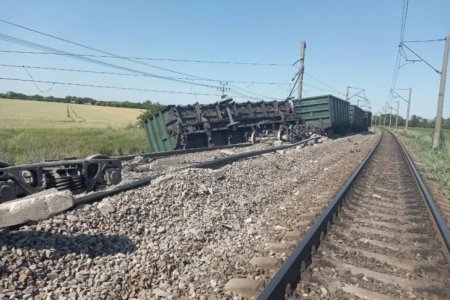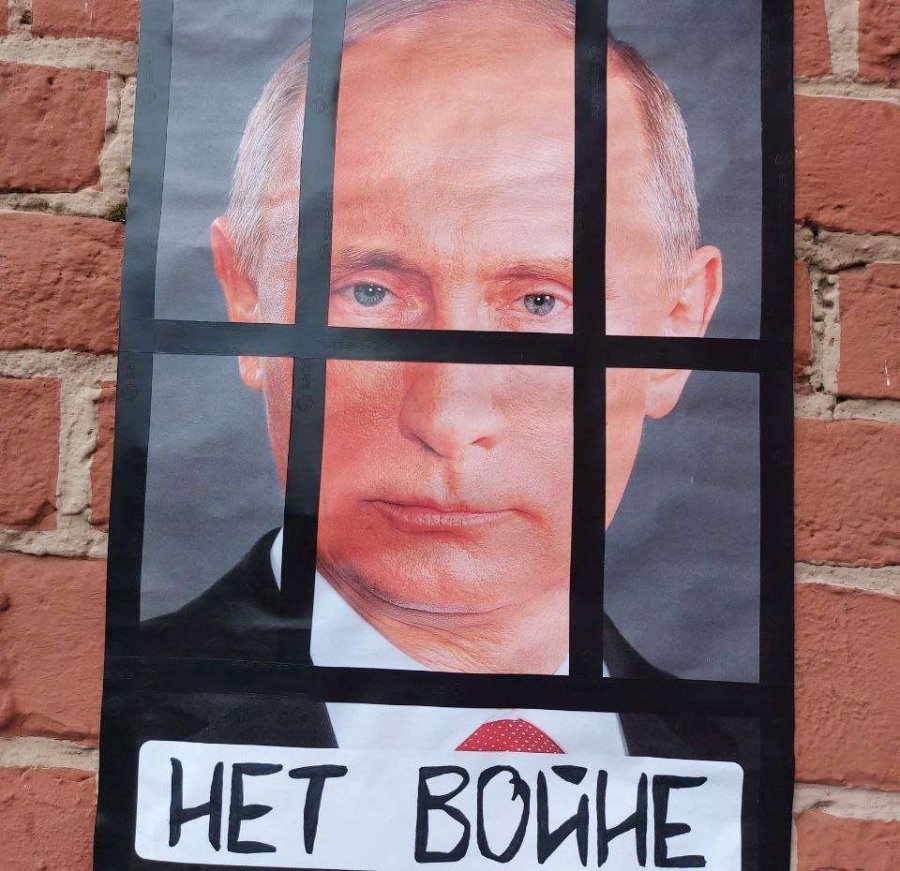 Activist Oleksandr Nizamov pasted a portrait of Putin on the Spasskaya Tower of the Kremlin, photo by OVD-info
Activist Oleksandr Nizamov pasted a portrait of Putin on the Spasskaya Tower of the Kremlin, photo by OVD-info
Protests and Arrests
Hardly any anti-war protest takes place in Russia today without harassment or prosecution by the police and the FSB. Protestors are fined under Article 20.3.3 of the Administrative Code; they are charged under Article 207.3 of the Criminal Code (up to 15 years imprisonment); or they may be sent, like Maria Ponomarenko of Barnaul (south Siberia), for psychiatric assessment.
*
On Sunday 17 July, two young women were arrested in Saint Petersburg: one is called Marina, the other wishes to remain anonymous. They wrote “Peace to Ukraine” on the walls of a building not far from the Electrosila metro station. They were charged with two administrative offences: petty hooliganism (Article 20.1, pt. 1) and “discrediting” the Russian army (Article 20.3.3). The police requested a linguistic analysis of the graffiti to be added to the charge of discrediting the Russian army.
*
Muscovite Olga Motyreva was arrested for writing “No to the War” with a pink marker pen on a bench near the entrance to the Krylatskie Hills park in west Moscow. She herself told OVD-Info about the incident. Olga was arrested near the “crime-scene” and taken to the Krylatskoe police station. She was released four hours later, charged with “discrediting” the Russian army (Article 20.3.3, pt. 1). They confiscated her marker pen.
*
On Wednesday 13 July, Muscovite Vladislav went to Pushkin Square in the city centre and held up a placard reading “No to the War”. The following Tuesday, 19 July, OVD-Info live reported that the Tverskoi district court had found Vladislav guilty of discrediting the Russian army (Article 20.3.3, pt. 1) and fined him 50,000 roubles.
*
OVD-Info live reports that on Wednesday 20 July anti-war protestor Dmitry Ageyev was arrested on Red Square in Moscow. He was holding a placard quoting from George Orwell's Nineteen Eighty-Four, “War is Peace, Freedom is Slavery”. Ageyev himself told OVD-Info about the incident. The police planned to take the protestor to the nearby Kitai-Gorod police station.
*
The same day near Red Square in Moscow Roman Shilov made a solitary protest holding a placard that read, “Do you still need this war?” These were the words on the placard held in the dock by Alexei Gorinov(see Digest 3-9 July) when he was sentenced to seven years imprisonment under Article 207.3 (Criminal Code) for circulating “fake news” about the Russian army.
Shilov was arrested and charged at the Kitai-Gorod police station with discrediting the Russian armed forces (Article 20.3.3, pt. 1).
*
Alexander Kuprilkin from Kovrov (Vladimir Region, Central Russia) published anti-war posts on his page on the Vkontakte social media.
A photo with the caption “No to the War” was accompanied, for example, by the text: “Sensible people of Russia! We did not start the war with Ukraine, but we must put an end to it. Do not remain silent! Silence is very costly today. No to the War!”Another post quoted from a petition against the war. A third post appealed to the inhabitants of Kovrov: “… do not remain silent about the murder of peaceful civilians … There is no way the invasion by ‘Russian’ forces … can be forgiven or justified.”
Kuprilkin was charged with discrediting the Russian armed forces (Article 20.3.3, pt. 1). He himself told OVD-Info about these events.
*
On Saturday 23 July, Igor Zaitsev was arrested on Red Square in Moscow for a solitary protest: “It’s now been 150 days without peace. Enough!” read his placard. Zaitsev himself informed OVD-Info of his arrest. He was taken to the Kitai-Gorod police station where, preliminary information suggests, he was charged with discrediting the Russian army (Article 20.3.3, pt. 1).
*
On Friday 22 July, Igor Batov, an activist in Pskov (Northwest Russia), was found guilty of “discrediting” the Russian army. The verdict was reported by the Pskovskaya gurberniya newspaper. An avatar with an inscription against the war and a post approving of the actions of soldiers who refused to fight in Ukraine were cited as evidence.
Batov is a local environmental activist and has taken part in rallies and pickets in support of Russia’s political prisoners.
*
Also on Friday 22 July, law-enforcement officers in Moscow arrested both Anna Mikhailova after she protested with a placard reading “No to the War” and Vladislav Guryanov who took a picture of Mikhailova’s protest. Guryanov himself reported the protest and arrests to OVD-Info.
Protestor Sergei Zazulin was also arrested on 22 July, reports his wife. She did not say what was written on her husband’s placard.
All three protestors were taken to the Kitai-Gorod police station; OVD-Info lawyerAnna Polozova went there to help and advise them.
*
On Saturday 16 July, law-enforcement officers in St. Petersburg arrested protestor Daniil Kokorin who was holding a placard reading “No to the War” at GostinyDvor, the city’s oldest shopping centre. His friend described the incident to OVD-Info.
*
Anti-war slogans written on the street in Moscow have led to charges of vandalism (Article 214, pt. 1, Criminal Code). Law-enforcement officers questioned local resident Nikita Kamensky. He was also charged with two administrative offences: discrediting the Russian army (Article 20.3.3, pt. 1) and petty hooliganism (Article 20.1, pt. 1). Kamensky was arrested on Friday 8 July. He was released the following day but on Tuesday 12 July law-enforcement officers searched his apartment. They claim that Kamensky wrote anti-war slogans with a Flomaster pen near the Timiryazev metro station in Moscow.
*
On Monday 18 July, activist Mikhail Kudryashov, who had already been released, was again arrested on Manege Square in the centre of Moscow. He himself reported the event to OVD-Info.Kudryashov protested in public, bearing a placard with the word “Peace”. Police officers took him to the Kitai-Gorod police station where he was charged with discrediting the Russian army (Article 20.3.3, pt. 1).
*
On Saturday 23 July, Kirill Yakovlev was arrested on Red Square in Moscow for protesting with a placard that read “No to the War”. He himself reported the incident to OVD-Info. Also arrested with him and taken away in the paddy waggon was Kirill Markov who was taking a photo of the protest. The arresting officers intended to take both men to the nearby Kitai-Gorod police station.
2,500 kms on foot to protest against the War, and against arrests, fines and imprisonment
On Tuesday 19 July, the 7x7 Horizontal Russia website published a report about Nonako, a young woman from the Perm Region (Volga Federal District). “She is planning to walk 2,500 kms, talking along the way with Russians and Belorussians about the military special operation in Ukraine and raising money to support political prisoners in Russia and Belarus.” Nonako considers herself to be more an LGBT than a political activist but, as she says, “in such a time we are all political”. She has already protested in her native town and one of the major cities of the Perm Region. Now she’s “decided to conduct an anti-war campaign on foot”. Nonako chose Minsk as her final destination since she admires the Belorussians and sympathises with their struggle against the authoritarian regime in their country.
Her goal, she says, “would be a photograph of a placard “Greetings, Peace’ in the centre of Belarus. That would be great’.”
Businessmen against the War
As earlier reported (see Digest 11-16 June) Dmitry Skurikhin, owner of a small shop in the Leningrad Region (Northwest Russia),has painted the outside walls of the premises with anti-war slogans and the names of towns and cities in Ukraine, bombed by the Russian forces.
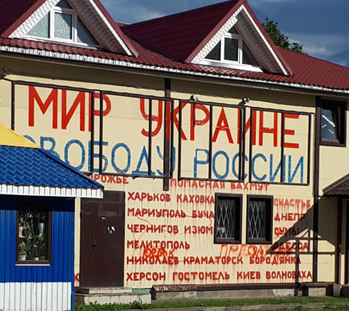
The local police have charged him with several offences, but the words remain on his shop. “I want to draw society’s attention”, said Skurikhin, “to the towns and cities of Ukraine that are suffering today, to show how many of them there are. Each year I pay about 1 million 200,000 roubles in taxes and our government uses this money to buy weapons. I don’t agree with that.”
Artists against the War
On Thursday 21 July, the news website 7x7 Horizontal Russia published a report about artists in Voronezh (Central Russia) who have organised a “Peace” project in their city. In July ceramic tiles, similar in appearance to Soviet signs, began to appear on the buildings and squares of Voronezh bearing the words, “Мир, Peace, Paix”. They were attached next to militarised sites – a memorial to a fighter plane, Z billboards, and the headquarters of a military unit. One of the project’s participants commented:
“I do not accept violence in any form. I don’t want people acting as if nothing is happening. They should remember that peaceful civilians are dying somewhere. Our project touches on this matter indirectly. For everyone ‘peace’ means something different. Our regime is also promoting the ‘Russian world’. I simply want to remind people of the peace of which my parents and our grandmothers and grandfathers talked in the USSR.”
*
On the night of 20-21 July, Alexander Nizamov was arrested in St Petersburg at the Ladozhskoe rail station for pasting a photo of Putin behind bars with the caption “No to the War” on the SpasskayaTower of the Moscow Kremlin.
Nizamov carried out his protest on Tuesday 19 July and then decided to leave for St Petersburg. He was arrested on leaving the train and subjected to several hours’ questioning. He was released on condition that appeared at the Kitai-Gorod police station in Moscow.
On Friday 22 July Nizamov appeared at the police station, accompanied by OVD-Info lawyer Tatyana Solomina. There he was charged with two administrative offences: taking part in an unsanctioned public protest and “discrediting” the Russian army.
Anti-war protests across Russia
A local council worker in Yekaterinburg (Urals) unintentionally created a new work of art when he tried, with mixed success, to cover graffiti reading “You can’t prettify war” with red paint.
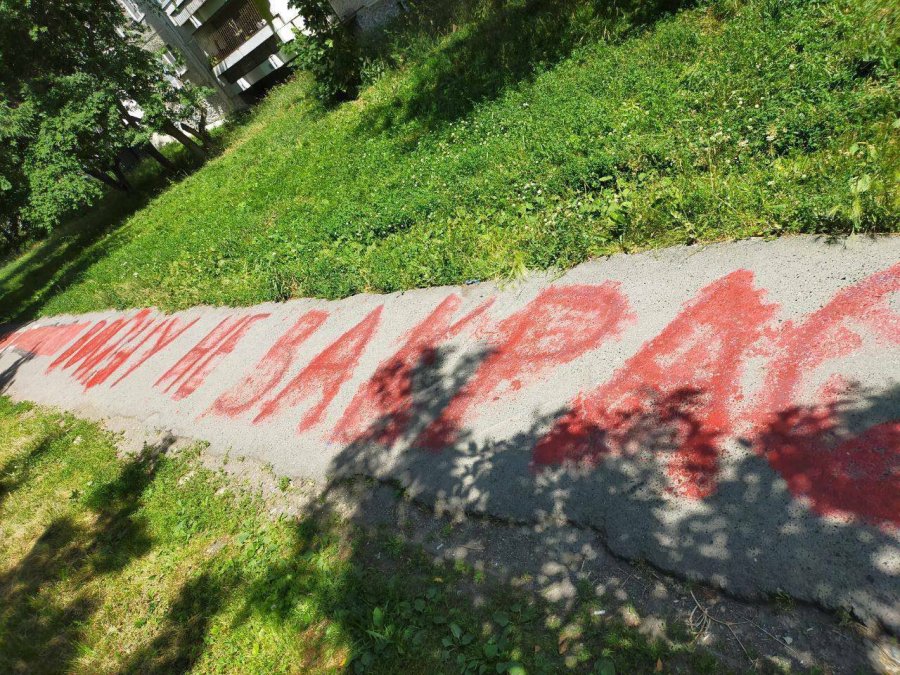
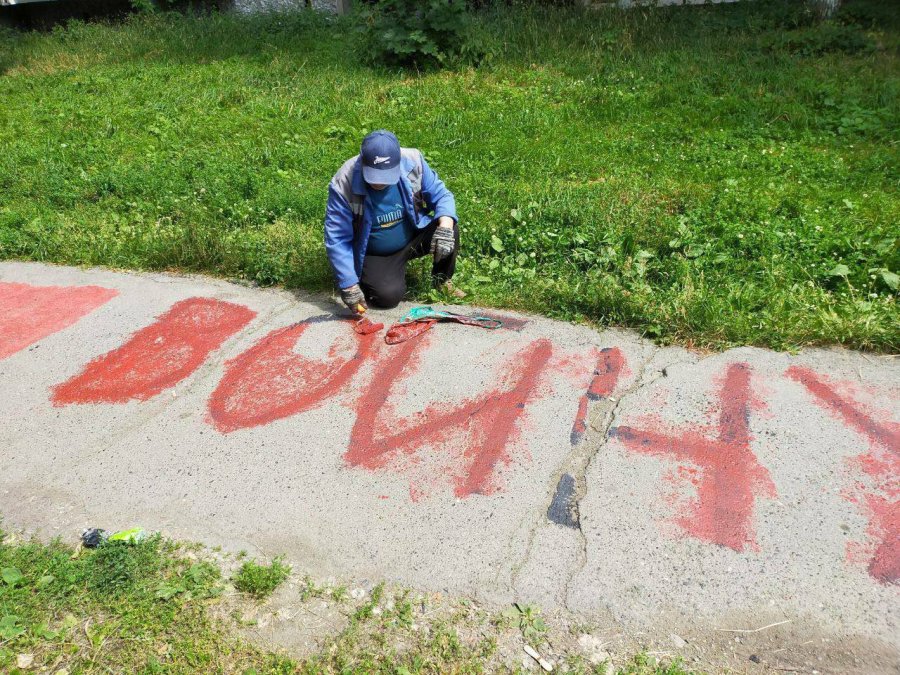
*
On Saturday 23 July, Communists in Novosibirsk (west Siberia) held a demonstration in support of peace, freedom of assembly and other civil rights. Activists carried placards reading, among others, “No to political terror”, “Judgement Day, you say: where’s the bomb shelter then?”, “Get rid of the trashy mafia”. The Communists announced that they were opposed to the war in Ukraine. They were, in their words, “for peace between workers and against the capitalists”.
At the demonstration, activist Jana Drobnokhod demanded that Article 207 of the Criminal Code, punishing “fake news” about the Russian army, be revoked. Participants at the demonstration also protested against increases in tariffs for communal services: in July Governor Andrei Travnikov raised the price of heating and hot water by 11%.
*
Protestors against the war in Ukraine or for the release of Russia’s political prisoners were arrested in central Russia (Ivanovo, Moscow), South Russia (Rostov-on-Don), the Volga District (Ufa) and in Siberia (Omsk and Krasnoyarsk). They were charged with a variety of administrative offences -- infringing Covid restrictions, discrediting the Russian army, violating rules for conducting protests -- or were released without charge.
*
Opponents of the war were fined for “discrediting the army” (Article 20.3.3, pt. 1) in the North Caucasus (Zheleznovodsk, Kislovodsk and Magas), in Northwest Russia (Pskov, Petrozavodsk), in South Russia (Volgograd, Georgievsk and Sochi), in Central Russia (Voronezh, Moscow) and in Tashtagol(Siberia). The fines ranged from 15,000 to 50,000 roubles. The pretexts for such punishment were pickets, public statements and posts on the internet.
*
In the Urals (Yekaterinburg) police officers detained activist Nadezhda Saifutdinova who shouted, “No to the War!” at a pro-war rally held by the ruling United Russia party. Saifutdinova had not planned her protest, she said, but “reacted emotionally” to the rally as she passed by.
*
On Sunday 17 July, the Vesna (Spring) anti-war movement launched its “Peaceful Skies” protest, against the war with Ukraine and for Putin’s impeachment. Activists launched paper planes from their windows decorated with the captions “Impeachment”, “Putin, resign!” and “No to the War”.
*
A Petrozavodsk pensioner (Karelia, Northwest Russia) was fined three times in two days for “discrediting our soldiers”. Tatyana Savinkina, a veteran of the Ministry of Internal Affairs, must pay a total of 31,000 roubles.
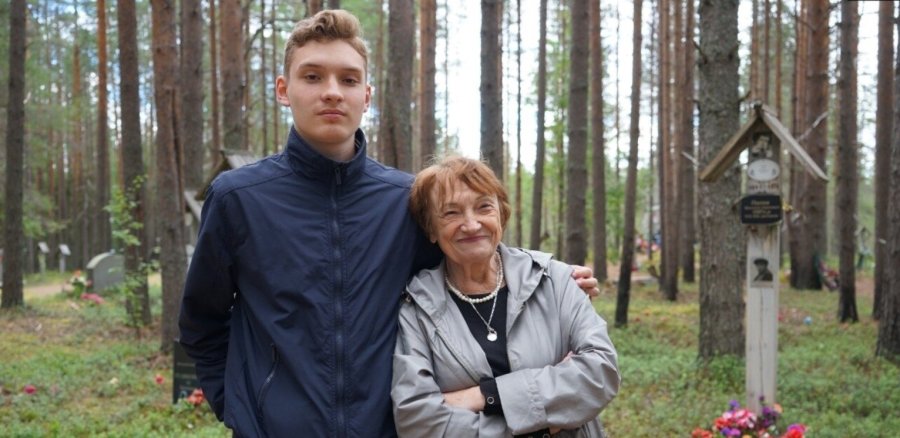
On Thursday 14 July Savinkina was fined 15,000 roubles after a school pupil in class nine reported that she had written something against the war on a bus shelter.She was ordered to pay the same fine the following day after she pinned up a flyer on the notice board in the stairwell of her apartment building containing “insulting remarks about the President”. Savinkina says that she was already fined for these flyers in May (“Putin, get out of Ukraine”) and had not posted them again. On Friday 15 July, she was fined another thousand roubles “for damaging property” by pasting the flyers to a waste container.
Tatyana Savinkina worked for 34 years at the Ministry of Internal Affairs in the department for political rehabilitation. During that time, she prepared hundreds of victims of political repression under Stalin for rehabilitation.Activists in Karelia are collecting money to pay the pensioner’s fines.
*
The Feminist Anti-War Resistance channel has described the protest waged by one of its activists. It is dedicated to the memory of a 13-year-old boy who died on Sunday 24 July when Russian forces shelled Kharkiv. The boy’s father held his son’s hand for two hours and recited prayers; all that time a Ukrainian police woman held the man’s hand. A heart-rending photo of the event has been viewed around the world.
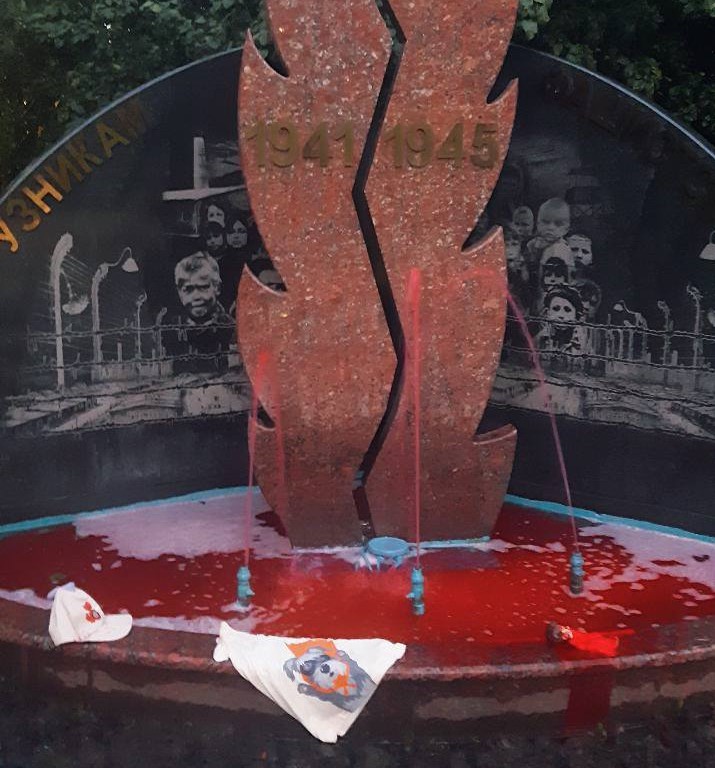
This war leaves behind fountains of blood and blood-filled rivers – no salvation or liberation of any kind. We thank the activist for her protest and confess that we wanted to carry out a similar protest in various Russian towns and cities on 9 May (Victory Day). It seemed too complex technically for widespread imitation. We shall learn more about the technique of this protest and compile instructions for those wishing to repeat it, bearing in mind the risks involved for our security and in making such a gesture.
These reports were compiled by Memorial volunteers from posts on the 24liveblog website of OVD-Info and on various Telegram channels OVD-Info Live, 7x7-Horizontal Russia, the Sota project, and the Feminist Anti-War Resistance movement.
Translation, John Crowfoot
